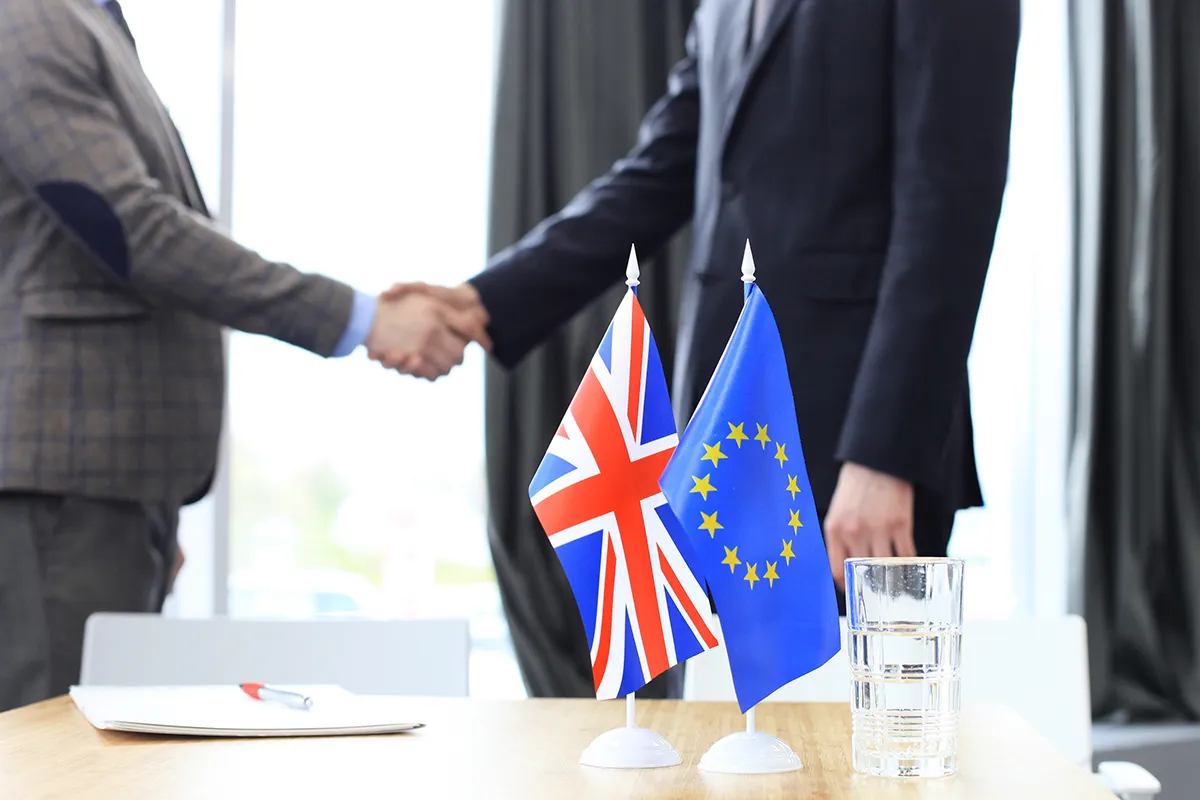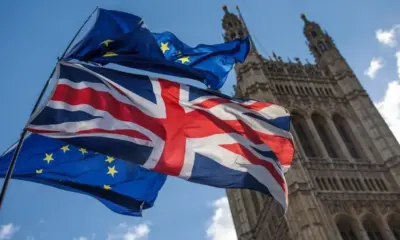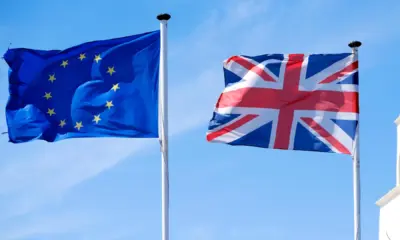News
UK–EU Trade Talks Restart Customs Deal in Focus

The United Kingdom and the European Union have reopened trade negotiations with the goal of achieving a revised customs agreement that could reshape post-Brexit economic relations. After months of technical consultations and political signaling, officials from both sides have returned to the negotiating table in Brussels and London. The discussions center on reducing trade friction, improving supply chain efficiency, and establishing a framework that benefits both exporters and consumers. The move marks a renewed effort to restore stability and trust in the partnership that remains vital to Europe’s overall economic health.
The decision to restart talks follows growing concerns from businesses over rising operational costs and border delays that have affected everything from food imports to automobile manufacturing. Economists argue that despite the UK’s departure from the EU, the economic ties between the two entities remain deeply intertwined. A new customs arrangement could simplify documentation, reduce transportation costs, and foster investment confidence, especially at a time when global markets face persistent uncertainty.
Negotiation Priorities and Economic Context
The current round of negotiations is being described by policymakers as pragmatic and forward-looking rather than political. Both sides appear to acknowledge the necessity of a stable trade environment, particularly as inflation pressures ease and European economies seek stronger growth momentum. The talks aim to address technical barriers that have hindered exporters, including lengthy border checks and complex certification requirements.
For the United Kingdom, the priority is to ensure smoother movement of goods without compromising regulatory autonomy. The government hopes to secure a streamlined customs framework that supports small and medium-sized enterprises which have struggled with increased administrative burdens since the initial Brexit transition. Officials in Westminster have emphasized that the goal is not to rejoin the single market but to refine the terms of cooperation to reflect mutual interests.
From the EU perspective, the focus lies on maintaining the integrity of the single market while encouraging predictability in trade flows. European negotiators have indicated a willingness to consider flexible solutions as long as they align with existing standards on safety, product quality, and environmental rules. Analysts say this approach signals a shift toward a more pragmatic relationship where both sides recognize the economic costs of prolonged tension.
The reopening of talks also reflects the broader geopolitical climate. The war in Ukraine, supply chain disruptions, and the push for energy diversification have highlighted the importance of reliable trade partnerships across Europe. Strengthened cooperation between London and Brussels could contribute to regional resilience and send a signal of unity to global investors.
Business Community and Market Response
The reaction from the business community has been cautiously optimistic. Major industry groups, including logistics associations and manufacturing councils, have welcomed the renewed dialogue as a potential breakthrough for trade stability. Many companies have adapted to the new regulatory environment but continue to face challenges with customs documentation and compliance costs. Simplifying these processes could restore competitiveness for UK exporters and encourage EU importers to maintain long-term supply relationships.
Small businesses stand to benefit the most from any successful outcome. A report by trade economists found that smaller firms were disproportionately affected by post-Brexit paperwork, leading to reduced export volumes. Streamlined customs procedures would allow them to reenter European markets with fewer financial and administrative obstacles. In turn, this could bolster employment in key export sectors such as food production, technology components, and creative industries.
Financial markets have also responded positively to the resumption of discussions. The pound strengthened slightly against the euro after early reports suggested that negotiators were making progress on preliminary frameworks for data sharing and digital tracking of shipments. Investors interpreted the move as an encouraging step toward restoring predictability in the UK’s trading environment. Improved customs efficiency could enhance the appeal of British assets and reduce inflationary pressures linked to import delays.
Political Implications and Future Outlook
Politically, the talks carry significant weight for both the UK and the EU. For the British government, securing a deal that delivers tangible economic benefits without undermining sovereignty could strengthen its position ahead of the next general election. The issue of trade remains central to public debate, with opinion polls showing broad support for improving relations with the EU as long as core national interests are protected. A successful agreement could serve as evidence that pragmatic diplomacy can deliver real results in the post-Brexit era.
For European leaders, progress on customs cooperation demonstrates the EU’s ability to maintain constructive relations with neighboring states outside the union. It also reinforces the bloc’s image as a stable trading partner committed to fair and predictable commerce. Analysts note that both sides are motivated by the same underlying need: economic recovery and long-term competitiveness.
The future of the talks will depend on the willingness of both parties to compromise. While technical challenges remain, diplomats close to the negotiations have expressed cautious optimism that an initial framework could be announced within months. The potential for an agreement on data transparency, customs simplification, and mutual recognition of standards would represent a significant breakthrough after years of friction.
Conclusion
The restart of UK–EU trade talks offers a renewed sense of opportunity for two partners bound by geography, history, and commerce. The emphasis on a modern customs deal reflects a shared understanding that cooperation, not confrontation, will yield the greatest economic rewards. Businesses across Europe are watching closely, hopeful that policy pragmatism will prevail over politics.
If successful, the new agreement could restore momentum to bilateral trade, reduce costs for consumers, and enhance regional economic stability. As London and Brussels continue their dialogue, the outcome will shape not only the future of British-European relations but also the global perception of how nations can redefine partnerships in an increasingly interconnected world.
















